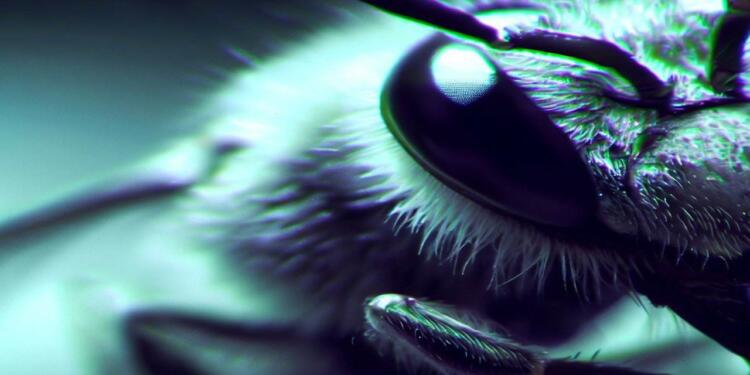As the sun rises, painting the sky with hues of pink and gold, you wake up to embrace the promise of a new day. The aroma of freshly brewed coffee fills the air, mingling with the scent of a delightful breakfast spread on the table. With a steaming mug of strong coffee in hand and a satisfying breakfast in your belly, you feel ready to take on the world as you prepare to head to your workplace, school, or any other daily endeavour that awaits you.
But what if, one day, this familiar routine comes to a screeching halt? What if the simple joys of sipping coffee, enjoying a hearty breakfast, and pursuing your aspirations were snatched away from you? The unimaginable prospect of a world without school to go to, food to eat, or even liquid to quench your thirst looms on the horizon.
However, this isn’t a plotline from a dystopian blockbuster film directed by the Christopher Nolan. It is a looming reality, a future that might not be too far away. Surprisingly, all it would take to bring about this catastrophic change is the absence of one seemingly insignificant being: The Bees!
The significance of bees in our natural diaspora
The bees, those tiny yet mighty creatures that diligently flit from one flower to another, are often underestimated for their profound impact on the delicate balance of life on Earth. These industrious insects belong to the family Apidae, a diverse group that includes honeybees, bumblebees, and stingless bees. While they might appear as mere dots in the vast expanse of nature, their role in sustaining the world’s ecosystems and, by extension, our very existence, is nothing short of awe-inspiring.
It is easy to overlook their significance as we go about our daily lives, but the truth is, bees are the unsung heroes responsible for pollinating approximately 75% of global food crops. From the juicy fruits and colourful vegetables adorning our plates to the crunchy nuts and delicious oilseeds enriching our diets, bees play an irreplaceable role in the production of these vital foods. Without their tireless efforts in transferring pollen from one flower to another, the very foundation of agriculture and food security would crumble.
But the impact of bees extends far beyond our plates. The diverse array of plant species they pollinate contributes significantly to the breathtaking biodiversity that paints our planet with hues of green, blue, and every colour in between. In a world without bees, countless plant species, some of which we might never even know existed, would wither away, leaving barren landscapes and silent forests bereft of the lively buzz of life.
Moreover, bees have been intertwined with human civilization for millennia, contributing not only to our sustenance but also to our culture and well-being. Their production of honey, beeswax, propolis, and royal jelly has been utilized for medicinal, culinary, and commercial purposes, enriching our lives and traditions.
The life cycle of bees
The story of bees begins over 100 million years ago during the mid-Cretaceous period when flowering plants were rapidly diversifying. The appearance of flowering plants presented an opportunity for insects, and among them, a group of wasp-like ancestors discovered the potential in this new floral buffet, setting them on the trajectory towards becoming the bees we know today.
Divergence and Specialization:
As flowering plants evolved, so did the ancient ancestors of bees. Over millions of years, certain wasp groups adapted to different floral resources, developing specialized structures for pollen collection and nectar feeding. These adaptations marked the divergence of bees from their wasp ancestors, turning them into expert pollinators.
Contribution to Biodiversity:
Bees are crucial pollinators, transferring pollen from one flower to another during their quest for nectar. This process is vital for the reproduction of numerous plant species, contributing significantly to biodiversity. The diversity of bee species leads to a diverse range of plants being pollinated, maintaining the balance and health of ecosystems.
The Global Beekeeping Industry:
Beekeeping plays a significant role in the economic and ecological landscape, with over 100 million beehives worldwide. Beekeepers contribute to pollination services and honey production, providing livelihoods for millions and supporting sustainable development.
Pollination Services:
The economic value of pollination services provided by bees is estimated to be several hundred billion dollars annually. Bees enhance crop yield and quality, contributing to increased profits for farmers and stable food supplies for communities.
Impact on Human Lives:
Bees are directly responsible for pollinating about 75% of global food crops, including fruits, vegetables, nuts, and oilseeds. This service ensures food security and a stable agricultural industry. Moreover, bees contribute to the production of honey, beeswax, propolis, and royal jelly, with various medicinal and commercial uses.
What if the bees vanish?
As we delve into this narrative, we shall witness the profound consequences that would ensue if these tiny yet essential beings were to vanish from our midst.
If the bees were to vanish from the face of the Earth, the consequences would be catastrophic. Bees play a fundamental role in pollination, which is the process of transferring pollen from one flower to another, leading to fertilization and the formation of seeds. This crucial process enables the reproduction of numerous plant species, including fruits, vegetables, nuts, and grains. Without bees, pollination would vanish, causing a domino effect on vegetation. As plants fail to reproduce, their populations would decline, leading to a gradual disappearance of crops and plants essential for human survival.
As pollination vanishes, the very foundation of our food chain crumbles. With diminishing vegetation, herbivores that rely on plants as their primary food source would face a grim fate.
The once-bountiful grazing lands would turn into barren landscapes, leaving herbivorous animals struggling to find sustenance. As their numbers decline due to hunger and lack of food, the predator-prey balance would be disrupted, affecting ecosystems at large. Moreover, this decline in herbivore populations would cause ripples through the food web, impacting carnivores that depend on these herbivores for their nourishment.
In this dire scenario, humanity would find itself facing an unprecedented crisis. Even if the entire world were to resort to non-vegetarianism to survive, the absence of bees and the significant reduction in vegetation would lead to a catastrophic breakdown in the food chain.
As herbivores drop dead one by one, the supply of fresh meat would dwindle. In desperation, humans may resort to killing one another to fulfil their survival instincts, leading to chaos, violence, and an apocalyptic state that no one could have imagined. The very fabric of society would disintegrate as people fight for scarce resources, turning the world into a nightmarish dystopia.
It becomes evident that the well-being of bees and the preservation of pollination are not just environmental concerns but existential ones, as the absence of these seemingly insignificant creatures could trigger a chain of events leading to our own downfall.
It is imperative that we take immediate and concerted action to protect bees and their habitats, as their survival is intricately woven into our own. Only through collective efforts can we ensure that our planet remains a vibrant and thriving home, sustained by the wondrous dance of bees and the magic of pollination or else let’s dwell deeper how will our planet look like with everything going out of track.
Support TFI:
Support us to strengthen the ‘Right’ ideology of cultural nationalism by purchasing the best quality garments from TFI-STORE.COM

























